How to be happy alone: 14 tips for being content by yourself
Learning how to be happy alone can be difficult. Here, three psychologists reveal the practical steps to take


Learning how to be happy alone is a process we all should go through, whether we're in a relationship or not. It's important to be able to spend time by yourself and enjoy your own company without feeling the need to be constantly surrounded by others.
Many equate being alone with feeling lonely, but it doesn't have to be this way. There are so many benefits to be had once you get content with being by yourself, such as chances for personal growth and better relationships in the future.
But that's easier said than done. Being happy alone - whether that's physically being without a romantic partner, friends, or family, or being surrounded by people but without close connection - isn't something that's been taught to many of us, health psychologist Joanna Konstantopoulou points out. "Social conditioning impacts how people see relationships as it shapes their beliefs, attitudes, and behaviours toward romantic relationships especially," she says. "When someone grows up in an environment that promotes the myth that happiness is only achieved through relationships, they struggle with their self-worth when they don't have a relationship."
Whether by situation or choice, learning how to be happy alone is entirely possible. Here, Konstantopoulou and other psychologists reveal the ways to switch your understanding of alone time to benefit your life. From learning how to be more confident to how to deal with loneliness, this is what they have to say.
How to be happy alone, according to the experts
1. Develop a better understanding of yourself
To be able to spend time by yourself, you need to work out what it is you enjoy doing alone, says Konstantopoulou, who is also the founder of the Health Psychology Clinic.
"Do activities that promote a better version of yourself, such as journaling, mindfulness, therapy, and yoga," she says. This should help you also develop the mind-body connection required to truly get in touch with what you want and need.
Joanna Konstantopoulou is an experienced registered practitioner psychologist specialising in Health Psychology and Cognitive Behavior Therapy. With over 10 years of scientific knowledge in psychology, and over 15 years of professional clinical experience she is an expert in behavioural and emotional change.
2. Focus on your environment
Living alone? It's important to make that space all about you, says Nova Cobban, psychologist and coach. "Wherever and however you live, make that space somewhere you love to be, somewhere that reflects who you are and works well for you," she says. "Take pleasure in your own space because it can have a huge effect on how you feel."
Sign up for the woman&home newsletter
Sign up to our free daily email for the latest royal and entertainment news, interesting opinion, expert advice on styling and beauty trends, and no-nonsense guides to the health and wellness questions you want answered.
This could mean something as little as reorganising your bedroom or as much as totally redecorating to bring a new style and feel to your home that feels a little more 'you'. For advice, take a look at our expert tips on how to organise a small space and other home organisation tips.
Nova Cobban is a psychologist, psychotherapist and coach. She has been working with women in different fields - including female leaders in corporate, founders of start-ups, entrepreneurs, high-profile women, mothers, cancer cancer survivors and everyone in between for over 20 years. Nova Cobban is also an NLP Coach, EFT Practitioner and Reiki Practitioner.
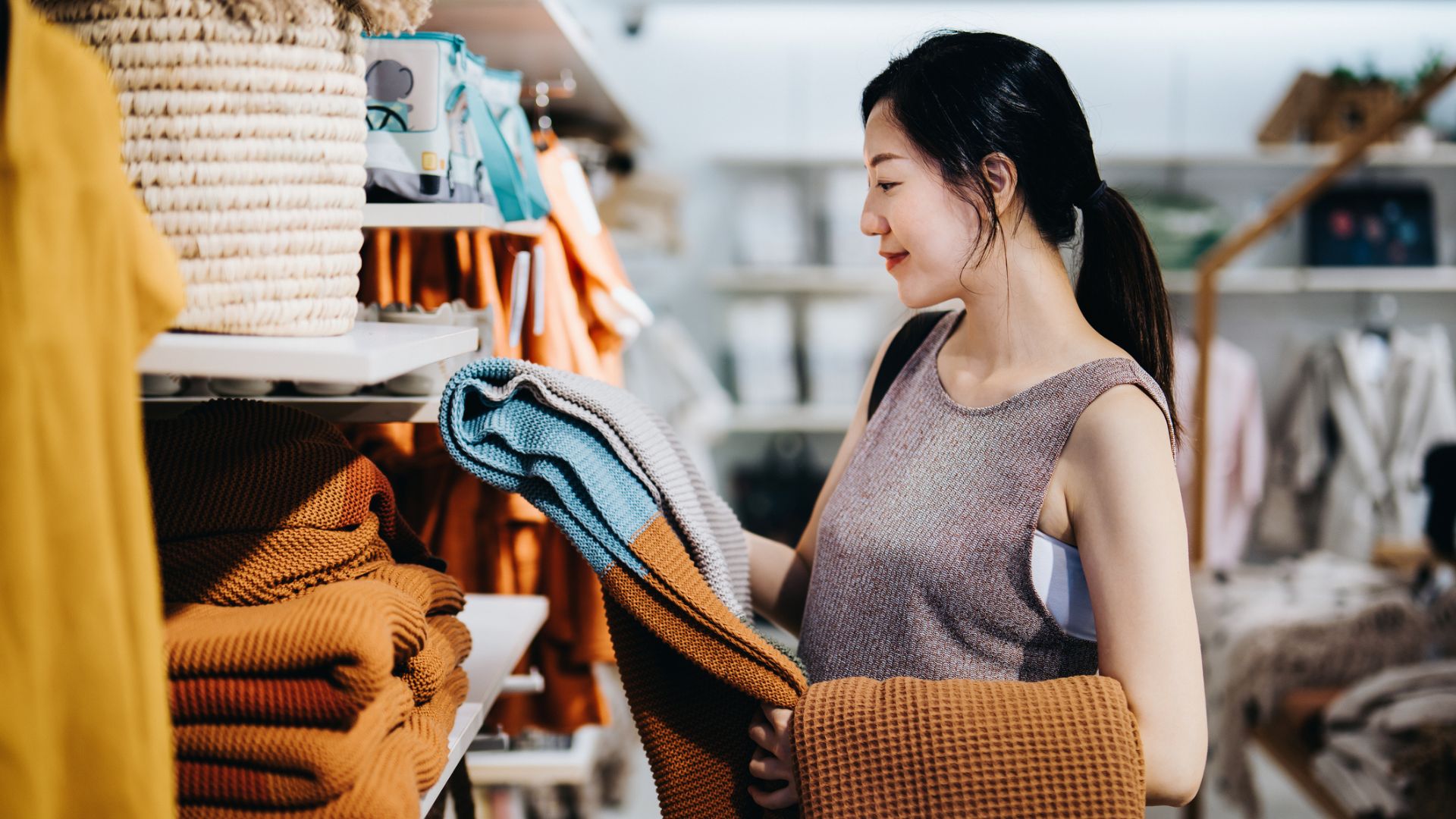
3. Avoid comparing yourself to others
Comparison is the thief of joy, the saying goes and it's so true. Social media can offer a lot of good to our lives, like the chance to keep up with long-distance friends, make new connections, and get inspiration, but researchers widely agree that it causes a lot of mental and emotional difficulties too. A systematic review by the California Institute of Behavioral Neurosciences and Psychology, for example, found a concrete link between social media envy and the risk of anxiety and depression.
Sure, in theory, we know that comparing ourselves to others is pointless. Not everyone has the same number in their bank account, the same 24 hours in a day, or the same resources available to them, so why would our lives look the same? We also know that people only tend to show the best sides of their lives on social media. However, scrolling through Instagram can give us the impression that everyone else is having a better time than us - even if we thought we were doing fine.
Feelings of FOMO (fear of missing out) crop up as a result, which by itself has been linked to worse mental health outcomes. In a study linked with the Clarion Psychiatric Center in Pennslyvania, researchers found a direct correlation between social media use, FOMO, and a decline in productivity, sleep disturbances, social anxiety, and clinical depression.
So, if you're looking to learn how to be happier overall and how to be happy alone, and you regularly use social media, try to avoid comparing yourself to others. And if you find this difficult, take a break and digital detox for a while to retune yourself to your own life and all it has to offer.
4. Pursue your passions
This is a time of your life when you have a huge level of freedom and independence, says Cobban, so think about what you want to do with this time. "What would you like to achieve that would not be as easy or as possible if you had to consider other people’s preferences to a greater degree?" she asks. "Setting goals helps us move toward something that we care about and give our lives a sense of purpose which is great for wellbeing."
Doing so involves engaging more in activities that bring you personal fulfilment, adds Konstantopoulou. "Focus on learning a new skill or set career goals and work toward them."
5. Develop a regular exercise routine
Being active, in whatever way works for you, can be key to finding happiness by yourself. Exercise offers so many health benefits but the ones related to our mental health are often undervalued. Even just walking as a workout can help boost your endorphin levels, increase mental alertness, and improve your overall mood, according to research in association with the University of Exeter.
Exercise can also be a great way to meet people as well. Whether it's joining a Nordic walking group, signing up for a run club, going to yoga class, or learning how to start weightlifting, active environments are often some of the best places to make new connections given the shared interest and time spent together.
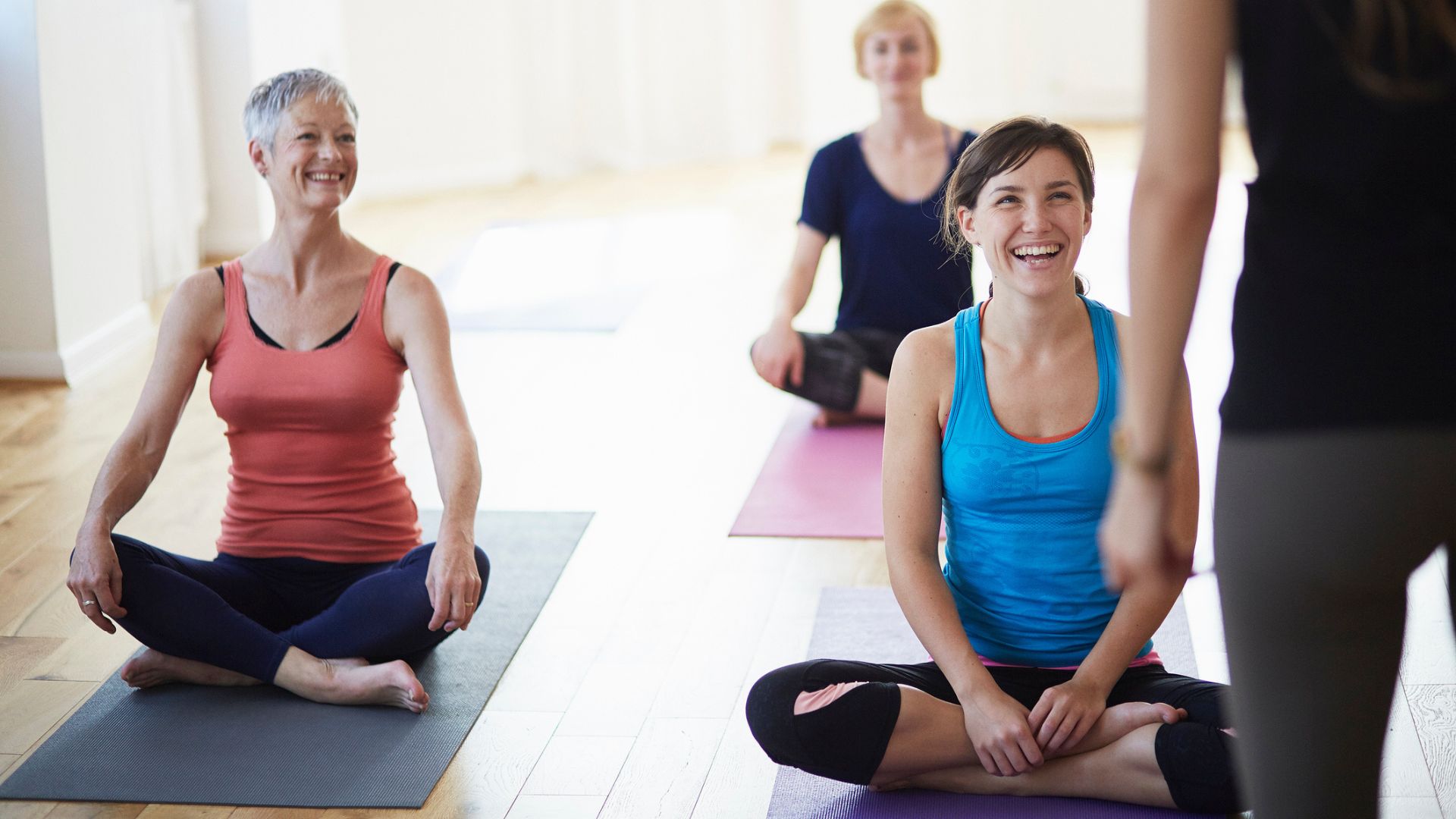
6. Spend more time in nature
Similarly, spending more time outside can help you brush off feelings of loneliness at home. Whether it's planning a long walk and taking the day to stroll through your city or lounging in your back garden, spending time outside can do wonders for our mental health and help you learn how to boost your mood in an instant.
It doesn't have to be for hours - but 30 minutes or more is essential. Per research by the University of Queensland, this is the minimum amount needed per week to improve symptoms of depression and lower your blood pressure.
7. Remember to put yourself first
When spending time alone, it can be easy to over-commit to some areas of your life - especially those where others are relying on you. Try to find a balance, the experts suggest, and remember that spending time with yourself is just as important as spending time with others.
"Find out what elevates your happiness levels and make time for these activities in your day so that you don’t over-resource your time and energy in one area of your life to the detriment of another," says Cobban. "If you find yourself working late into the night because there is no one asking for your attention, then remember that there is someone else needing attention - you."
8. Lean into the benefits of being alone
Day-to-day, there are many benefits to being by yourself and taking advantage of these could be the key to happiness in later life. Practically speaking, you're not relying on anyone else for your own happiness and they're not relying on you. This frees you up from obligation and compromises in one area of your life - much of your time is completely your own.
"Single people can have more confidence to plan their day and do things they love without pressure from their partner. This cultivates personal growth and self-discovery," says Cobban. "They are often also able to nurture deeper, more meaningful friendships, they may have less stress because of fewer concepts, and better health because they tend to be more active."
9. Improve your social connections
While this may not be possible for everyone who is struggling with being by themselves, if you've just got out of a serious long-term relationship or you've moved to a new area where you're lacking close friends and family, reaching out to expand your social circle could be the way forward.
"Find old or new friends to develop strong relationships and invest in group activities to broaden your social network," says Konstantopoulou.
Going back to the positives of social media, platforms like Facebook and Instagram can be great places to explore your local community and all it has to offer without having to leave the house. Think about finding a new hobby - what do you enjoy doing? Everything from hiking groups to charities looking for volunteers, there's bound to be an established group close to you full of people who enjoy doing the same things as you and are looking for others to join. It's one of the best ways to learn how to make friends as an adult.
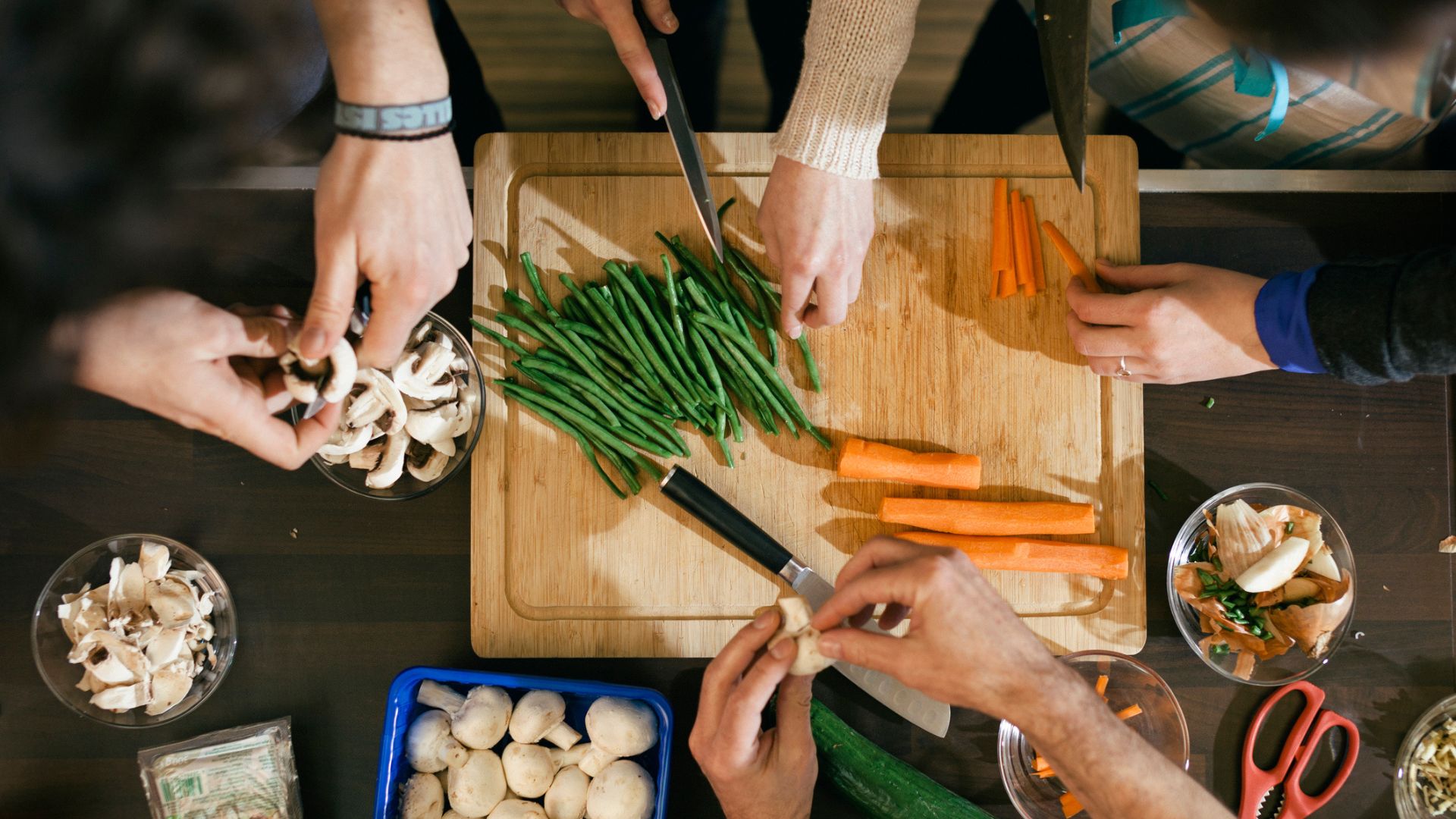
10. Make your own plans for the future
Just because you don't have a travel buddy doesn't mean you can't go on holiday. Sure, it might look a little different, but it can still be fun. Finances dependent, investing in a home doesn't need to come with a life partner. Brunch is still brunch, even without the company.
When learning how to be happy alone, being self-reliant is so important, says Cobban. "When you have to make life work on your own, without someone else to rely on, you have to become self-reliant. This is a huge benefit in life, when you are resilient you manage change with less stress and you experience less negative emotions whilst you are dealing with stress too," she says. For those dealing with stress and exhaustion, and looking for how to recover from burnout, this can be essential.
"Resilient people also tend to find a way to meet challenges head-on and deal with them, which makes them highly desirable in the workplace and also, leads to them being more successful at building lasting relationships."
11. Keep a routine with purpose
If you're new to being by yourself, you may feel the need to always be out of the house and busy. Yet, keeping to a solid routine for most of the week could be the route to happiness and the key to how to be happy alone.
During the Covid-19 pandemic, many people found comfort in the familiarity of a daily routine. Now some years down the line, there's research on it. According to the National Taiwan University, organising our activities every day can help us be more resistant to the onset of loneliness.
Other research suggests that having a purpose - something to get up for in the morning - is the key reason behind this. A joint study from the University of Zurich, Washington University and the University of Tilburg found that those with a sense of purpose, whether that purpose involved other people or not, were less likely to experience feelings of loneliness.
That being said, it should be something manageable enough to keep consistent. "Feeling like you need to save the world can lead to existential dread and distress," says study co-author Patrick Hill, an associate professor of psychological and brain science, via Neuroscience News. "It's [also] OK if someone else thinks that your purpose is trivial, as long as it's meaningful to you."
12. Get a pet
The responsibility of a pet shouldn't be taken lightly and not everyone will have the home or lifestyle for an animal. However, if you've been thinking about getting a pet or are open to the idea, then it could be one way to way to feel content without human company.
Post-lockdown, researchers from the University Medical Center Hamburg-Eppendorf looked at several studies examining the link between pet ownership and lower levels of loneliness. While the link between the two was only marginal pre-pandemic, it appeared to strengthen in the lockdown years, suggesting that having a pet can be particularly beneficial for reducing loneliness among those isolated from others.
13. Speak kindly to yourself
A positive relationship with our bodies and our minds is the key to knowing how to deal with loneliness and how to be happy alone, the experts say. So, it matters how we speak to ourselves.
"We can often judge ourselves for feeling unhappy, but it is important to cultivate the practice of self-compassion," says Dr Rina Bajaj, a counselling psychologist and the author of The Magic In Me. "Avoid self-criticism and negative self-talk, and remember that improving happiness is a gradual process. Treat yourself with the same kindness and understanding that you would offer to a friend who's going through a tough time."
Dr Rina Bajaj is an award-winning chartered counselling psychologist, trainer and published author, running her own practices in London. Rina has over 17 years of experience within the field of mental health and wellbeing across a range of industries, including charities, the NHS, corporate companies and the education sector. She is passionate about supporting people from all communities to gain access to the right support as quickly as possible so that they are able to thrive and reach their full potential.
14. Don't be afraid to ask for help
All that said, some people will find being alone harder than others, whether that's because of personal circumstances, mental health difficulties, or personality type.
For example, according to one well-established theory by psychiatrist Carl Jung, is that we can all be divided into two main personality types: introverts and extroverts. Those who are extroverted seek and receive their emotional energy from others, while introverts find that internally within themselves. Naturally, some people flit between the two and sit on the middle ground. But largely, we fit more into one category or the other. Those who are more extroverted, as a result of this personality type, may struggle more with being happy alone than those who are more introverted.
No matter the reason why you're alone, it's important to seek help if you're struggling. "If loneliness is affecting your mental health or stopping you from living your day-to-day life in any way, then a chat with your health practitioner would be recommended," says Cobban.
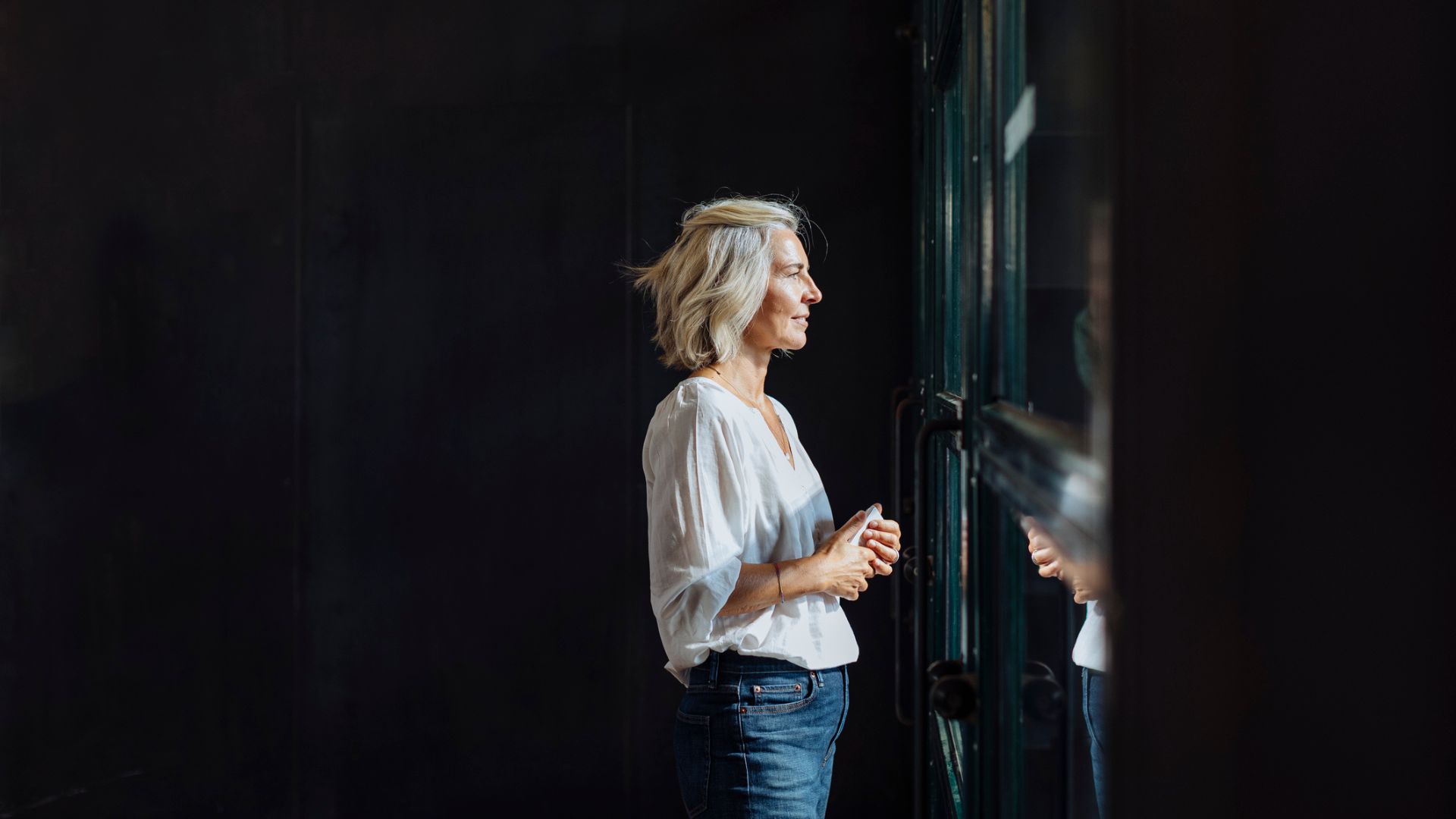
The psychology of being happy alone
Why is it hard to be happy alone? As much as the introvert vs extrovert theory will ring true for many, there are several psychological reasons why we tend to avoid being by ourselves as a society.
"We are deeply connected to our cultural norms and societal expectations, we are also driven by our nature as human beings," explains Cobban. "Each of these influential pieces of our external and internal world tells us that being alone is not good for us, that we need someone in our lives who is psychologically linked to us and emotionally in tune with us so that we have a better chance of survival."
In millennia gone by, that survival was physical. Today, it's more social than anything else, the psychologist says, and it can be one of the main causes of relationship anxiety. "It’s now much more about thriving than surviving and showcasing how well you are doing at that to everyone," she says. "So you can see that within this perspective, we would have a strong sense that we need to be with someone in order to socially thrive, and without social thriving, we fear there will be fewer opportunities, less acceptance, less financial reward, and many other fears connected to not being in a relationship. However, for the most part, these fears are not connected to what is actually true." For example, many people also have to learn how to be happy in a relationship.
How can I be alone without feeling lonely?
- Find things to look forward to: Loneliness often comes from the feeling of being disconnected from the world around you. Make plans, whether that's by yourself or with others during your alone time so you have something to look forward to in the next few days or weeks. It can be one of the biggest confidence boosters around.
- Fill your space with sound: If the quiet of being home alone makes you feel lonely, move around with some sound in the background. That could be music, the voice of a friend or family member over the phone, a podcast, or your favourite television show.
- But consume content mindfully: With this sound, try to avoid content that speaks of subjects you might find upsetting - such as the news, current affairs podcasts, and documentaries dealing with troubling subjects. Instead, try to choose content that offers you positive feelings or feelings that you crave from other people.
- Figure out your attachment style: "People with an anxious attachment style seek intimacy to reassure their self-worth. When they don’t have a relationship, they feel lonely, rejected, and not good enough," says Konstantopoulou. When you know your attachment style, you can better understand what you need from your relationships.
As noted, some people will find learning how to be happy alone harder than others. "If you find yourself feeling lonely because you have reduced your normal daily activities or interactions and have stopped enjoying them, it's a good idea to seek some support," advises Cobban. "It might be that you feel lonely because you feel disconnected from your emotions or needs, and this too would be a sign to seek some help."

Grace Walsh is woman&home's Health Channel Editor, working across the areas of fitness, nutrition, sleep, mental health, relationships, and sex. She is also a qualified fitness instructor. In 2025, she will be taking on her third marathon in Brighton, completing her first ultra marathon, and qualifying as a certified personal trainer and nutrition coach.
A digital journalist with over seven years experience as a writer and editor for UK publications, Grace has covered (almost) everything in the world of health and wellbeing with bylines in Cosmopolitan, Red, The i Paper, GoodtoKnow, and more.
-
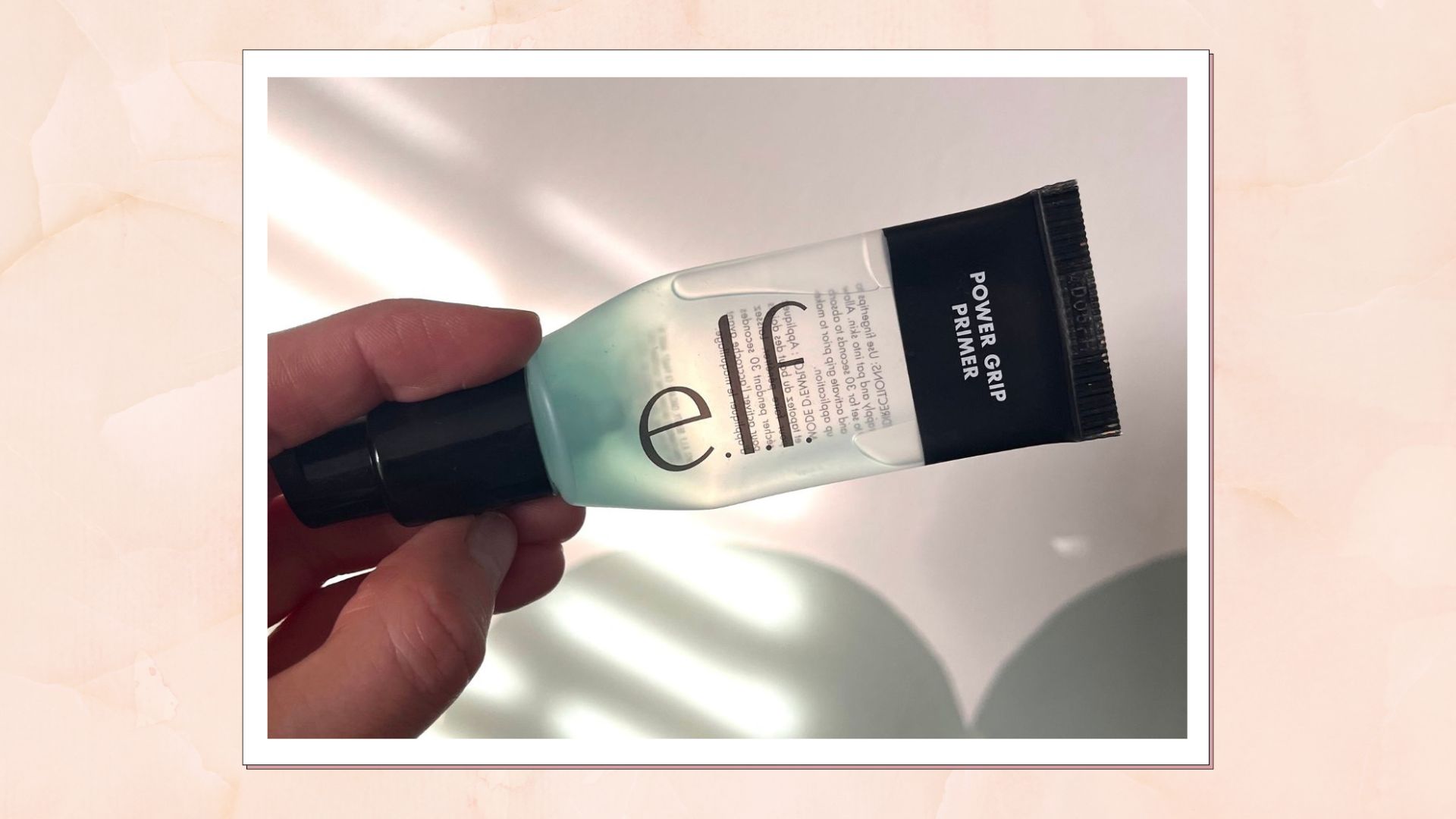 This £10 primer is the only thing that can make my foundation last past lunchtime
This £10 primer is the only thing that can make my foundation last past lunchtimee.l.f. Power Grip Primer is the budget buy our oily-skinned Beauty Editor, Jess Beech, can't live without
By Jess Beech Published
-
 The eye cream Reese Witherspoon uses to banish 'concealer creasing' and puffiness was already a bargain - now it's on sale
The eye cream Reese Witherspoon uses to banish 'concealer creasing' and puffiness was already a bargain - now it's on saleThe inexpensive eye cream Reese Witherspoon uses to reduce puffiness, dark circles and creases in her concealer is even more affordable than usual today.
By Charlie Elizabeth Culverhouse Published